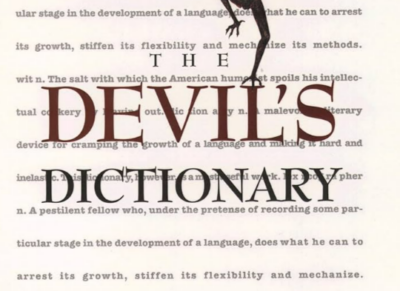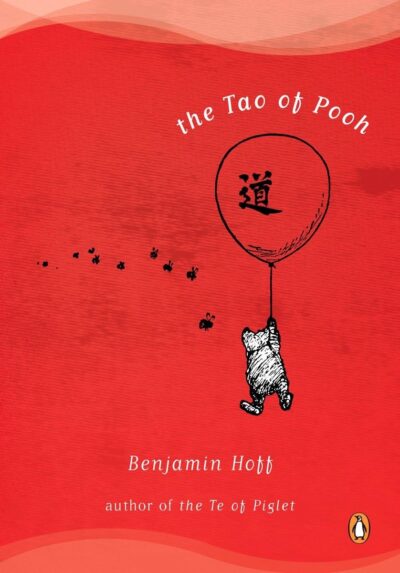128 Results in the "Philosophy" category
Biography & Memoir (434)
Books Like (8)
Business & Finance (26)
Children’s Fiction (176)
Dystopian (16)
Education & Learning (9)
Fantasy (1144)
fashion (1)
Fiction (4224)
Health & Wellness (21)
Historical Fiction (504)
Horror (159)
Literary Fiction (747)
Non-Fiction (1175)
Novel (229)
Others (82)
Poetry (208)
Politics & History (125)
Posts (62)
Psychology (46)
Religion & Spirituality (1)
Romance Novel (525)
Science & Technology (82)
Science Fiction (200)
Self-Help & Personal Development (99)
Thriller / Mystery (776)
Travel & Adventure (2)
True Crime (55)
view (96)
Young Adult (214)
-
Chapter
Chapter M
 Chapter M opens with Bierce’s sardonic interpretation of Mace, not as an ornamental staff of office, but as a relic of violence disguised in symbolism. Once wielded to physically crush opposition, it now merely represents authority—yet the threat it implies has not vanished. Bierce suggests that all symbols of power retain traces of their brutal origins, no matter how ceremonial they appear today. This observation invites reflection on how civilization dresses violence in the robes of civility. The…
Chapter M opens with Bierce’s sardonic interpretation of Mace, not as an ornamental staff of office, but as a relic of violence disguised in symbolism. Once wielded to physically crush opposition, it now merely represents authority—yet the threat it implies has not vanished. Bierce suggests that all symbols of power retain traces of their brutal origins, no matter how ceremonial they appear today. This observation invites reflection on how civilization dresses violence in the robes of civility. The…-
82.1 K • Ongoing
-
-
Chapter
Chapter N
 Chapter N begins with Bierce’s take on Nectar, the mythical drink of the gods, rendered here as a lost recipe that modern drinkers in Kentucky may have accidentally stumbled upon. His tone lightly mocks the human tendency to romanticize ancient myth while indulging in earthly pleasures that serve similar purposes. Bierce transforms nectar from a symbol of divine vitality to a joke about strong spirits, linking the sacred and profane through satire. This sets the stage for the chapter’s interplay…
Chapter N begins with Bierce’s take on Nectar, the mythical drink of the gods, rendered here as a lost recipe that modern drinkers in Kentucky may have accidentally stumbled upon. His tone lightly mocks the human tendency to romanticize ancient myth while indulging in earthly pleasures that serve similar purposes. Bierce transforms nectar from a symbol of divine vitality to a joke about strong spirits, linking the sacred and profane through satire. This sets the stage for the chapter’s interplay…-
82.1 K • Ongoing
-
-
Chapter
Chapter O
 Chapter O begins with Bierce’s sardonic take on Oath, described not just as a solemn vow but as an appeal to a deity designed to scare someone into telling the truth. He points out that its real power comes less from divine authority and more from the fear of perjury and punishment. The deeper suggestion is that society often relies on fear rather than integrity to uphold honesty. Bierce’s view strips the ceremonial dignity from the act and leaves behind a mechanism rooted in human insecurity. The oath…
Chapter O begins with Bierce’s sardonic take on Oath, described not just as a solemn vow but as an appeal to a deity designed to scare someone into telling the truth. He points out that its real power comes less from divine authority and more from the fear of perjury and punishment. The deeper suggestion is that society often relies on fear rather than integrity to uphold honesty. Bierce’s view strips the ceremonial dignity from the act and leaves behind a mechanism rooted in human insecurity. The oath…-
82.1 K • Ongoing
-
-
Chapter
Chapter P
 Chapter P opens with Bierce’s treatment of Pain, which he describes not merely as a physical sensation but as a reminder of life’s imperfection. It is framed not as something to avoid, but something that teaches—unwanted yet often more honest than pleasure. Bierce argues that pain, unlike happiness, demands attention and shapes behavior. In his view, discomfort is more instructive than joy, serving as a sobering influence on human pride. Through this, pain is elevated from nuisance to necessary…
Chapter P opens with Bierce’s treatment of Pain, which he describes not merely as a physical sensation but as a reminder of life’s imperfection. It is framed not as something to avoid, but something that teaches—unwanted yet often more honest than pleasure. Bierce argues that pain, unlike happiness, demands attention and shapes behavior. In his view, discomfort is more instructive than joy, serving as a sobering influence on human pride. Through this, pain is elevated from nuisance to necessary…-
82.1 K • Ongoing
-
-
Chapter
Chapter Q
 Chapter Q opens with Bierce’s definition of Queen, who he presents as a monarch not limited to figurehead or consort. Her presence is shown to possess influence both active and implied, shaping outcomes whether she reigns directly or supports from behind the throne. Bierce suggests that while kings may rule, queens maneuver—often more subtly, and sometimes with greater lasting impact. This nuanced depiction challenges the assumption that power is loud, offering instead the idea that it is often wielded…
Chapter Q opens with Bierce’s definition of Queen, who he presents as a monarch not limited to figurehead or consort. Her presence is shown to possess influence both active and implied, shaping outcomes whether she reigns directly or supports from behind the throne. Bierce suggests that while kings may rule, queens maneuver—often more subtly, and sometimes with greater lasting impact. This nuanced depiction challenges the assumption that power is loud, offering instead the idea that it is often wielded…-
82.1 K • Ongoing
-
-
Chapter
The How of Pooh?
 The chapter begins with an introduction to the concept of Taoism, aiming to clarify misconceptions for those unfamiliar with the philosophy. The author humorously suggests that understanding Taoism can be facilitated by imagining a journey to China, where ancient allegories and teachings originate. This playful approach sets the stage for exploring the core ideas of Taoism through cultural symbols and stories, making complex ideas more accessible. The author emphasizes that Taoism is about understanding…
The chapter begins with an introduction to the concept of Taoism, aiming to clarify misconceptions for those unfamiliar with the philosophy. The author humorously suggests that understanding Taoism can be facilitated by imagining a journey to China, where ancient allegories and teachings originate. This playful approach sets the stage for exploring the core ideas of Taoism through cultural symbols and stories, making complex ideas more accessible. The author emphasizes that Taoism is about understanding…-
28.4 K • Ongoing
-
-
Chapter
The Tao of Who?
 The chapter begins with a lighthearted discussion among friends about the nature of wisdom, leading to Pooh’s humorous assertion that his understanding of Taoist principles has been passed down by ancient ancestors. This sets the tone for exploring Taoist concepts through playful dialogue and character-driven anecdotes. Pooh’s reference to Taoist sages, such as Wu Tao-tse and Li Pooh, humorously highlights the importance of humility in understanding profound ideas. The conversation emphasizes that…
The chapter begins with a lighthearted discussion among friends about the nature of wisdom, leading to Pooh’s humorous assertion that his understanding of Taoist principles has been passed down by ancient ancestors. This sets the tone for exploring Taoist concepts through playful dialogue and character-driven anecdotes. Pooh’s reference to Taoist sages, such as Wu Tao-tse and Li Pooh, humorously highlights the importance of humility in understanding profound ideas. The conversation emphasizes that…-
28.4 K • Ongoing
-
-
Chapter
Spelling Tuesday
 The chapter begins with a vivid description of Winnie-the-Pooh's journey through the Hundred Acre Wood, emphasizing his simple yet earnest belief that Owl, the wise bird, possesses valuable knowledge. Bear's admiration for Owl reflects a common perception that wisdom resides in those who seem to know a great deal, setting the stage for a deeper exploration of what true knowledge and wisdom entail. The narrative introduces Owl's house as a symbol of seeking answers and understanding, prompting reflection on…
The chapter begins with a vivid description of Winnie-the-Pooh's journey through the Hundred Acre Wood, emphasizing his simple yet earnest belief that Owl, the wise bird, possesses valuable knowledge. Bear's admiration for Owl reflects a common perception that wisdom resides in those who seem to know a great deal, setting the stage for a deeper exploration of what true knowledge and wisdom entail. The narrative introduces Owl's house as a symbol of seeking answers and understanding, prompting reflection on…-
28.4 K • Ongoing
-
-
Story
The Tao of Pooh
 The Tao of Pooh by Benjamin Hoff is a charming and accessible exploration of Taoist philosophy through the beloved characters of A.A. Milne’s Winnie the Pooh.By using Pooh’s simple, natural way of living as a guide, Hoff illustrates key Taoist principles such as effortless action (wu wei), simplicity, and living in harmony with the world.Blending humor, storytelling, and wisdom, The Tao of Pooh offers…
The Tao of Pooh by Benjamin Hoff is a charming and accessible exploration of Taoist philosophy through the beloved characters of A.A. Milne’s Winnie the Pooh.By using Pooh’s simple, natural way of living as a guide, Hoff illustrates key Taoist principles such as effortless action (wu wei), simplicity, and living in harmony with the world.Blending humor, storytelling, and wisdom, The Tao of Pooh offers…-
2.6 K • Apr 27, '25
-
2.6 K • Apr 27, '25
-
2.1 K • Apr 27, '25
-
-
Chapter
Foreword
 The chapter begins with a playful dialogue between the narrator and Pooh, introducing the concept of "The Tao of Pooh." This title symbolizes a humorous yet profound approach to understanding Taoism through the simple, innocent perspective of Winnie-the-Pooh. The narrator explains that the book aims to explore how Pooh’s uncomplicated happiness and calmness reflect Taoist principles, emphasizing a gentle, accessible philosophy that resonates with everyday life. Pooh’s interactions and questions serve…
The chapter begins with a playful dialogue between the narrator and Pooh, introducing the concept of "The Tao of Pooh." This title symbolizes a humorous yet profound approach to understanding Taoism through the simple, innocent perspective of Winnie-the-Pooh. The narrator explains that the book aims to explore how Pooh’s uncomplicated happiness and calmness reflect Taoist principles, emphasizing a gentle, accessible philosophy that resonates with everyday life. Pooh’s interactions and questions serve…-
28.4 K • Ongoing
-
- Previous 1 … 6 7 8 Next
